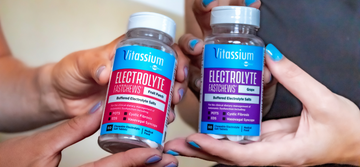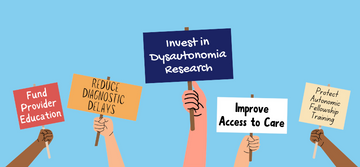
Recently the Wall Street Journal (WSJ) published an article about long-lasting COVID-19 ramifications for certain people who contracted the SARS-Cov-2 virus.
Several months after the initial infection, some COVID-19 patients continue to struggle with fatigue, trouble breathing, exercise intolerance, gastrointestinal issues and cognitive difficulties (or “brain fog”). By some estimates, as many as 5% to 15% of COVID-19 patients can experience these long-lasting symptoms, and around 80% of them are women.
“If I go outside and walk for 30 minutes it will put me down for two days,” Chelsea Alionar, a 37-year-old who has struggled with COVID-19 symptoms for more than three months, told the WSJ. “If I go to Safeway, I’m down for several days. Leaving the house is not an option.”
Unfortunately, some people say they struggle with getting appropriate medical diagnosis and physicians blame their symptoms on anxiety: “They tell me that there’s really no way that I could be sick with COVID this long and that I absolutely have to be depressed and anxious and it’s got to be mental health,” Alionar said.
DYSAUTONOMIA OVERVIEW
To anyone living with dysautonomia, these trends will sound familiar.
Thought to affect more than 70 million people worldwide, the majority of whom are women, dysautonomia is a medical term that represents a malfunction of the Autonomic Nervous System. This system controls the “automatic” functions of the body that we do not consciously think about, such as heart rate, blood pressure, digestion, dilation and constriction of the pupils of the eye, kidney function and temperature control. People living with various forms of dysautonomia have trouble regulating these systems, which can result in lightheadedness, fainting, unstable blood pressure, abnormal heart rates and malnutrition.
Dysautonomia can be triggered by viruses as well as other medical events, such as strokes and heart attacks, and emotional traumas. The condition is not contagious, but it can occur in tandem with other conditions such as postural orthostatic tachycardia syndrome (POTS) and Ehlers-Danlos syndrome (EDS).
Awareness of dysautonomia remains low within the medical community. Moreover, because patients with dysautonomia usually do not display many outward signs, doctors sometimes dismiss symptoms as being “all in one’s head.” Additionally, there is no single test to determine dysautonomia, and diagnosis is usually made based on a collection of symptoms and examination results, including blood pressure tests, sweat tests, breathing tests and lab work. Thus, most patients take years to get diagnosed.
However, thanks to efforts from groups like Dysautonomia International, awareness is improving. In places like Mount Sinai Health System in New York City, doctors are even considering dysautonomia as one culprit behind the strange, long-lasting COVID-19 symptoms, according to the WSJ. “That is our lead theory as to what is going on,” Dr. David Putrino, Mount Sinai’s director of rehabilitation innovation, told the WSJ.
MANAGING DYSAUTONOMIA
To help manage symptoms, dysautonomia patients are advised to avoid sitting for long periods of time, treat contributing medical conditions and adopt a useful physical therapy routine.
In addition to low-impact exercise, many dysautonomia patients are advised by their physicians to increase their salt intake, which can help counteract low blood volume and other changes that can occur as a result of the condition. Increasing salt has been shown to be particularly helpful in patients with blood pooling, hypovolemia or hypotension. You can learn more about the relationship between salt intake and dysautonomia symptoms on our Science page.
Most individuals with POTS and other forms of dysautonomia are advised by their physicians to consume 2-3 liters of hydrating fluids and 8-10 grams of salt per day. It’s important to check with your physician for your specific needs.
If you are looking for a way to boost salt intake to help manage dysautonomia symptoms, you may find SaltStick Vitassium helpful. Vitassium is a medical food specifically formulated to provide sodium and potassium for the clinical dietary management for patients with autonomic dysfunction including POTS, EDS and Vasovagal Syncope, when increased plasma volume has been shown to be beneficial. Vitassium helps to maintain electrolyte levels, to support healthy blood pressure, and to reduce fatigue and dizziness due to low blood pressure. The tasteless capsules are designed to be easy on the stomach.
You can learn more about Vitassium here.
“I take 4 capsules [of Vitassium], twice a day, and I haven’t felt this healthy and full of energy in years!”
– Aida, Wisconsin
Doctors are still examining whether COVID-19 can cause dysautonomia, but if you have been struggling with long-term symptoms that include lightheadedness, fatigue and abnormal heart rate, it’s important to speak with a physician to see if dysautonomia could be the cause. You can also learn more about dysautonomia from Dysautonomia International.
Disclaimer: Contact your physician before starting any exercise program or if you are taking any medication. Individuals with high blood pressure should also consult their physician prior to taking an electrolyte supplement. Overdose of electrolytes is possible, with symptoms such as vomiting and feeling ill, and care should be taken not to overdose on any electrolyte supplement.







